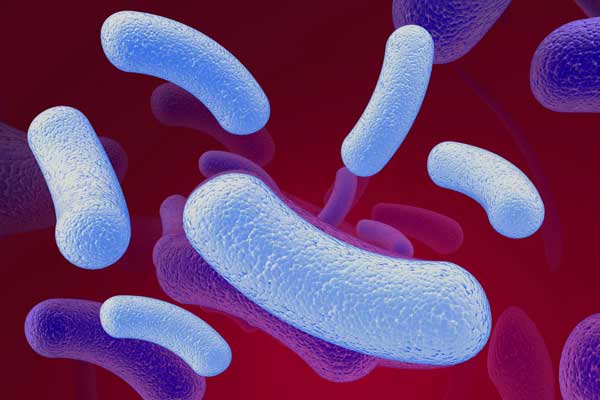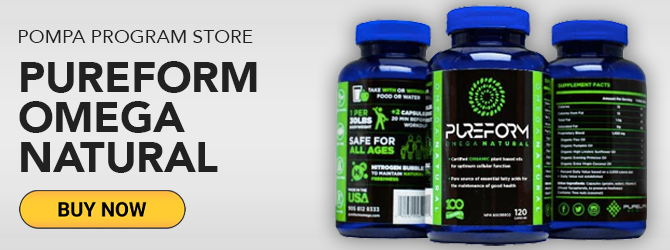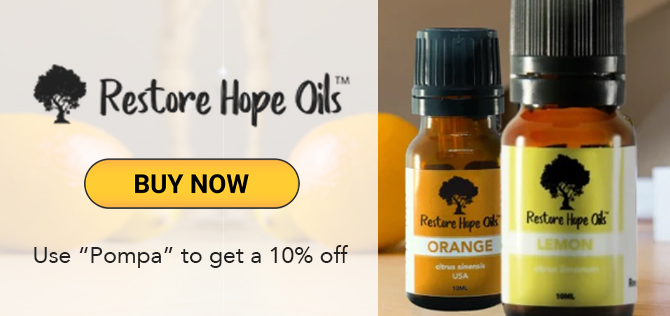The New Science On Probiotics – Not just an answer to digestive problems, and good versus bad bacteria in your gut.
Why autoimmune conditions and obesity are on the rise due to the lack of certain probiotics that you can't get in a pill or a powder.
Probiotics in the form of foods and supplements have experienced massive growth in product sales in the last few years. Probiotics are known for their role in improving digestion and gut health. They are also linked to many health conditions such as autism, autoimmune diseases, diabetes, immune problems, weight loss, and numerous others. Because of the growing amount of research being released about probiotics, consumers are becoming more aware of the need for these good bacteria that outnumber our cells 10 to 1. Sales are expected to reach 31.1 billion by 2015, according to new market predictions. Experts estimate with some of the new studies being released in the next year that even these numbers could be dramatically low.
Are Your Probiotics Worth it?
This might come as a surprise, and I don’t want to be the downer in the probiotic sales boom, but I have never been a big fan – at least from the standpoint of fixing really “bad guts” like the ones I see in very sick and challenged patients. Don’t get me wrong; I believe there is some benefit from taking probiotics, and many people can benefit from them. The issue that I raise is two-fold. First, these are living organisms, and they need to be in their natural environment to survive and thrive. When surrounded by certain enzymes, fats, natural sugars, and components we don't even understand yet, they can survive our tough inner ecosystem and take up home in the lower GI where they are needed most.
Probiotics in a pill or powder are far from being in their natural environment, and too few survive to have any lasting healing effect, especially with severe conditions. Secondly and more importantly, the few popular strains of good bacteria (Lactobacillus, Bifidobacterium, etc.) pale in comparison to the trillions of bacteria scientists are now realizing inhabit our bodies and are needed for not only intestinal health, but for our bodies to function. The cover of Scientific American stated, “In your body, bacteria outnumber your own cells 10 to 1. Who is in control?” Scientists now refer to this complex community of microbial cells and the genes they contain as the “microbiome”. Its not just about good guys verses bad guys; this is about “who is in control.” Scientists have gained new insights into how our bodies function and why we are seeing a surge in certain conditions like obesity and autoimmune disorders. What they have learned is that the genes of these microbes communicate with our DNA. More than just communicate, they give our cells function.
One of the goals of the Human Genome Project, which was completed in 2003, was to explain the complex function of the human cell in comparison to other organisms. Conventional thought at that time was this: for each gene, there is one function. Geneticists estimated that it would take around 120,000 genes to explain the higher level of function of the human cell compared to other lowly creatures like the mouse or worm. The experts were shocked to find that the entire human genome consists of around 25,000 genes. That’s the same number of genes as a mouse and just 1000 short of the worm at 24,000. The million-dollar question remained: how do humans achieve all of the complex functions with so few genes? The answer lies in the “epigenome,” which means “above the gene”. New science called “epigenetics” revealed that it’s not our genes (DNA), but their response to the environment. This means that certain environmental factors, good or bad, such as toxins, nutrients, and even the bacteria in our gut, can change the expression, or function, of our genes. Therefore, it’s not “one gene, one function” as thought before; it’s your gene’s interaction with its environment that drives the multitude of complex functions that our own DNA are not coded for or capable of on their own.
In the Scientific American article it stated that, in 2010, a European group of scientists published a paper documenting that the human digestive tract contains more than 1000 different bacteria species which have 3.3 million genes. Humans have 25,000 genes; that means the bacteria have 150 times the number of genes we have. In the last few years, researchers have come to understand that certain aspects of our health and even who we are have more to do with the 3.3 billion genes from the microbiome than our 25,000. The article stated:
“Research into the nature of the human microbiome has yielded many surprises: no two people share the same microbial makeup, for instance – even identical twins. This finding may help unravel a mystery presented by the Human Genome Project, which confirmed that the human DNA of all people the world over is 99.9 percent alike. Our individual fates, health, and perhaps even some of our actions may have much more to do with the variation in the genes found in our microbiome than in our own genes.”
Therefore, who you are may have more to do with your “bugs” than your parents. This could be a big sigh of relief for many parents and kids.
New Answers for Obesity and Auto-immune Conditions
This new science goes far beyond our relationship with this new microbial world and who we are. It gives us new answers for numerous diseases that are plaguing so many. The irony is that for years, we have been running from and attempting to kill bacteria, and now we have learned we can’t live without them. It is truly fascinating how we interact with these bacteria, and the diseases and conditions that arise when the bacteria are not present. For example, a bacterium called “Bacteroides thetaiotaomicron” has genes that code for more than 260 enzymes that help us digest carbohydrates and extract their nutrients. We simply don't have the genes to make these enzymes, and if you lack the bacteria, you will not get the nutrients from the food. The bacteria also consume carbohydrates known as polysaccharides. After eating these complex carbs, the bacteria produce a short-chain fatty acid that is eliminated in its feces. Sounds gross, but these fats are a great source of energy for us and allow us to eat 30% less calories and be satisfied. In the Scientific American article, they referred to a study where they raised mice without this bacteria, and the mice in the study that didn't have the bacteria had to consume 30% more calories. It’s easy to see how this could pack on the unwanted pounds.
Another bacteria involved in unwanted pounds is a so-called “bad” bacteria that perhaps you’re more familiar with called H. pylori. H. pylori are a bacterium with a bad rap for causing stomach ulcers. When individuals with ulcers take antibiotics and kill these pesky bacteria, 50% of sufferers find relief. The problem is that they end up gaining weight for no reason. For years, doctors and scientists had no explanation, but now they know it’s the result of H. pylori’s close relationship with the hormone ghrelin, a hormone that signals your brain to eat. It’s what gives you the hunger sensation in the morning. It’s now known that H. pylori are involved in decreasing ghrelin levels, therefore decreasing your appetite. When antibiotics are taken to kill the H. pylori, the ulcers feel better, but ghrelin levels increase, which increases hunger and leads to weight gain. The scientific American article quoted Martin Blaser, a professor of internal medicine and microbiology at New York University who has studied H. pylori for 25 years, saying; “We have a whole generation of children who are growing up without H. pylori to regulate their gastric ghrelin.” He goes on to say that children who are exposed to repeated high doses of antibiotics for things like ear infections are at great risk for obesity.
“He believes that the various bacteria within the microbiome may influence whether a certain class of the body’s stem cells, which are relatively not specialized, differentiate into fat, muscle, or bone. Giving antibiotics so early in life and thereby eliminating certain microbial species, he argues, interferes with normal signaling, thereby causing the overproduction of fat cells.”
Our Children are at Risk
Our children are at a greater risk than we are. They are growing up in a generation that not only overuses antibiotics, but antibacterial soaps, and hand sanitizers. Even the way babies are coming into the world put them at greater risk. Another article in Scientific Daily indicated that the mode of delivery during the birth process has been shown to affect the infant’s microbiome and therefore the health of the child later in life. Vaginal microbes change through pregnancy in preparation for birth and deliver good bacteria to the newborn during a normal vaginal birth. However, C-section births, which are on the rise, affect the infant’s introduction to these beneficial microbes. C-sections reduce the number and variety of good bacteria that the infants are introduced to. The new evidence suggests that this has a subsequent affect on their health and development. Even the health of the mother plays a role. If mom has bad gut flora, she ends up having a baby with bad gut flora. The baby in utero is considered sterile until it passes through the birth canal where it becomes inoculated with mom’s good bacteria. Toxic moms will also produce toxic babies. More and more research shows that toxins from mom are transferred to the baby in utero, which can lead to a toxic baby even before birth. Either way, this can set off generations of bad gut flora, which can then lead to other health problems. In an interview with Dr. Mercola at mercola.com, Dr. Natasha Campbell-McBride, an expert in gut related illnesses such as autism, states:
“What I see in families of autistic children is that 100 percent of the moms of autistic children have abnormal gut flora and health problems related to that. But then I look at grandmothers on the mother’s side, and I find that grandmothers also have abnormal gut flora, but much milder.”
Dr. Campbell-McBride goes on to say that because these children do not develop the normal gut flora at birth, it leads to a toxic brain later. Toxins and bad microbes leak across the gut to the bloodstream and end up in the child’s brain. She explained that the child does not go on to have normal development, which leads to autism and autism-related disorders.
The Auto-immune Answer
Autoimmune conditions are on the rise every year. Even simple allergies have reached record numbers and continue to rise. The discovery of a bacteria and its relationship to our immune system has opened the door to a new understanding as to the cause of this epidemic and has given us new hope for treatments. Bacteroides fragilis has been shown to regulate our immune system by stimulating regulatory T cells. These cells bring balance to the pro-inflammatory T cells that give us immunity, but if not regulated by regulatory T cells, it can cause the body to be in hyper-immunity, leading to autoimmune conditions.
Scientific American states:
“For years researchers assumed that this system of checks and balances was generated entirely by the immune system. But in yet another example of how little we control our own fate, Mazmanian and others (scientists researching the relationship with bacteria and immunity) are starting to show that a healthy, mature immune system depends on the constant intervention of beneficial bacteria.”
“Alas, because of life style changes over the past century, B. fragilis, like H. pylori, is disappearing. “What we've done as a society over a short period has completely changed our association with the microbial world,” Mazmanian says. “In our effort to distance ourselves from disease-causing infectious agents, we have probably also changed our association with beneficial organisms. Our intentions are good but there is a price to pay.”
Where Can I Get These Good Gut Bacteria?
Other than avoiding antibiotics, antibacterial soaps, hand sanitizers, and C-sections, my suggestion is: eat more dirt. Okay, I am not completely serious, but I am in part. Many of these good bacteria are in the dirt and on the plants we eat – if you eat organic, that is. Sprayed, washed, and processed vegetables and fruits will not contain enough beneficial microbes to make an impact on your health. Eating raw, non-washed, organic food will help, but if you are trying to improve your health or digestion, you need to consider fermenting/culturing. Recall that I said that I was not a big fan of probiotics. I stated earlier that most of the good bacteria do not survive and they do not contain the numbers (in trillions) or types needed to impact the severe heath conditions that have become pandemic. Most probiotics on the market contain at best 10-15 billion probiotic colonies per serving, however a fermented dairy product (not one destroyed by heat) or a fermented vegetable contains more than 10 trillion colonies per serving. You would have to take the entire bottle of probiotic pills to equal that number, and even then, it doesn't contain the types of beneficial bacteria in these studies. You simply cannot get these “super microbes” in a pill or powder. Bacteroides, which I spoke of earlier, are one of the most important and most abundant bacteria in the colon and are not present in any probiotic on the market. They simply would never survive more than a few seconds outside the gut in the presence of oxygen. Although Bacteroides can’t be taken in a pill or powder, they can be fed from prebiotic (the food for bacteria) that occurs naturally in healthy foods. This in turn will increase the bacteria numbers. Eating natural fermented foods supplies us with not only the trillions of good bacteria needed to impact our gut health, but so many more undiscovered bacteria that I believe could be the most miraculous of all.
Fermentation had been around for centuries before refrigeration and preservatives as a way to preserve food. As you can see, this lost art has had an impact on human health. Most of what people were eating was cultured or fermented; therefore people were ingesting trillions of these good bacteria daily. I believe if we were still consuming fermented and cultured foods, we would not see the number of health problems like obesity, autoimmune conditions, allergies, and the epidemic of GI conditions that lead to a host of other illnesses.
Where Can I Get Cultured or Fermented Foods?
They are not difficult to make if you have a good, reliable culture to start with, however most do not, and let’s face it, most will not take the time to do it. Truth is, even if you found the time and a good culture, what is the quality of the food you’re culturing? Take cultured dairy for example: is it truly grass fed, which means it has all the good fats and bacteria? Is it heated and pasteurized to the point that it kills all the good bacteria that naturally comes from the cow that eats the grass and dirt? Does the dairy contain A1 Beta Casein, a denatured protein 23x more toxic than gluten? 99% of all dairy from cows has it, and it drives inflammation, especially in those who have gut issues. Starting with an inferior product leads to a product that at best gets marginal results, but often times can make you worse.
I am a firm believer in grass-fed, cultured dairy, because it is what fixed my gut. I, like many, tried every probiotic on the market to no avail. I even sought out a cultured goat product to avoid the allergies and inflammation typical in dairy from cows. At that time, I didn’t realize that it was the denatured protein in the cow’s milk (A1 Beta Casein) that causes the allergies. A1 Beta Casein occurs in breeding, due to the transmutation of a gene many years ago. Goat does not contain A1 Beta Casein and therefore does not have the same negative effect. However, dairy from goats is hard to find, especially cultured correctly, and most people do not like the taste.
Beyond Organic is a company that has genetically bred back cows to an ancient breed that does not have the trans-mutated A1 Beta Casein gene. Those who react to dairy can ingest the cultured products this company produces with no problems. There is nothing like these products on the market. I use these products with almost every patient, especially those with gut-related conditions. The product Amasai is cultured using a very ancient culture from an African tribe known as the Masai. Even the cheese, which is not heated above the cow’s body temperature (and therefore truly raw), contains many unique beneficial bacteria strains that you will never find in a pill or powder. The cows are raised and slaughtered using biblical standards, which prevents toxic meat. The cows are only fed grass (unlike most who say they do) but they also utilize a practice called “ultra-high-density grazing.” This practice not only increases nutrient levels, but I believe increases the bacteria levels, due to how the cows themselves fertilize the fields. When the cows eat the grass and dirt that host so many different beneficial bacteria, many of them end up in the dairy we consume. If the product is now cultured and not destroyed with high heat, we have a source of good bacteria that cannot be duplicated anywhere. Therefore new bacteria is created during this process, and I believe that we have yet to discover or identify many of the good bacteria in these truly naturally products, as well as other components that add to its healing effects.
The company will be offering more unique cultured products. Currently, I use the Amasai, Sueroviv, and the cheese as the source of these incredible microbes. They produce a product in the “Suero” line known as SueroGold, which can be used to culture raw nuts, seeds, and vegetables. See my article on intermittent fasting to learn how I use these products to support challenging health conditions.








